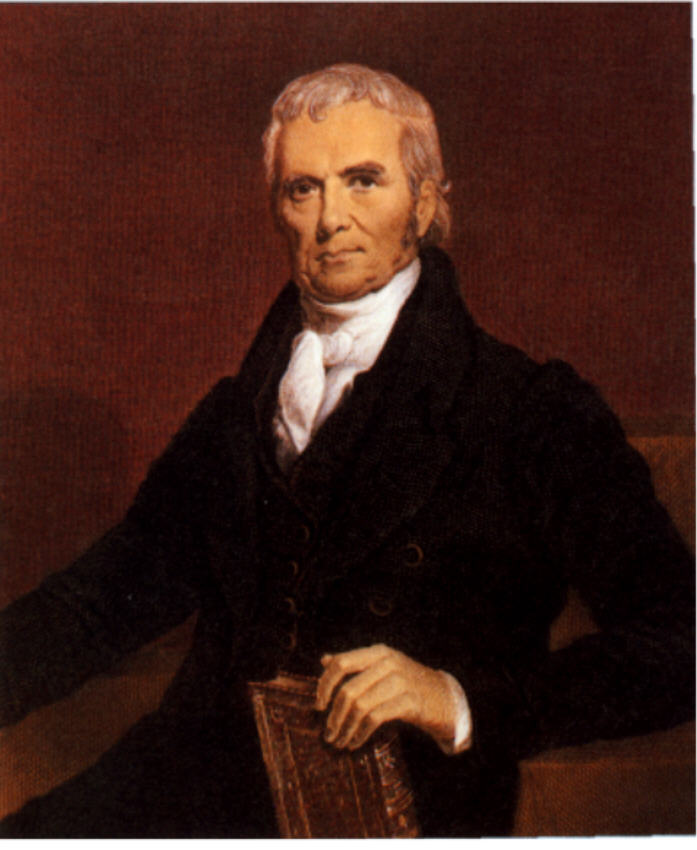

He had read Alexander Pope's Essay on Man and memorized much of it by age 12. John Marshall had a rough outdoor childhood, but was well educated by his father and mother. Much warm correspondence between Marshall and his father, Thomas Marshall survives in Marshall's adulthood he and his father were like close friends and business colleagues. Marshall was always very close to his family. John Marshall was born September 24, 1755, in Fauquier County, Virginia, oldest of 15 children, 9 boys, six girls. Here is a brief chronology of John Marshall's life:

In 1837, Chief Justice Roger Taney’s ruling in the Charles River Bridge case declared that public convenience superseded the interests of a particular company, thereby endorsing internal improvements and advancing economic development.

Marshall nationalized many issues, and can be said to have made the U.S. Ogdenin 1824 the Court defined Interstate Commerce and asserted the right of the Federal Government to exclusive control over that commerce, though later decisions granted the right of states to act where the Federal Government had not done so. For example, the specific power to levy taxes implies granting Congress the necessary powers required to accomplish that, such as the creation of a depository (bank) or, later, the creation of the Internal Revenue Service. Maryland (1819) the Court affirmed the constitutionality of the Second Bank of the United States, thereby legitimizing the doctrine of implied powers, meaning that where the Constitution bestowed specific powers on Congress, it also implicity bestowed the lesser authority necessary for carrying out the specified powers. Marshall also asserted the precedence of federal power over state authority, and in McCulloch v. In several opinions, the Marshall Court upheld the sanctity of contracts, beginning with Fletcher v. His decisions constantly favored manufacturing and business interests, advanced economic development, and established the supremacy of national legislation over state laws. John Marshall was a strong nationalist and held a Hamiltonian view of the Constitution. In a survey of lawyers and jurists done in the 1930s, Marshall was unanimously selected as the greatest Chief Justice in American history. Some people confuse him with another Marshall, George Catlett Marshall, author of the “Marshall Plan.” Among those who know his work, John Marshall is extremely important. People who have heard of him think he was the first Chief Justiceactually he was the fourth. There is no act of my life on which I reflect with more pleasure.” John Adams, 1826Ĭhief Justice John Marshall is perhaps the least appreciated figure in American history. “My gift of John Marshall to the people of the United States was the proudest act of my life. JOHN MARSHALL: The “Man Who Made the Court Supreme”


 0 kommentar(er)
0 kommentar(er)
